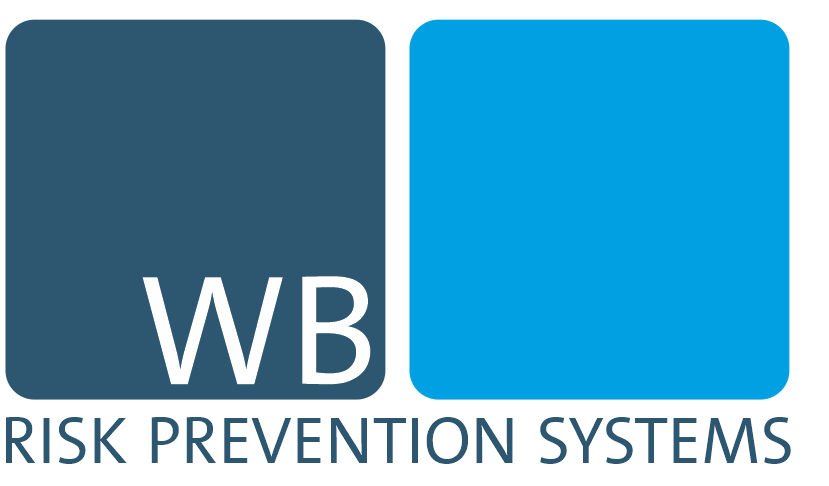Ein Kommentar von WB Risk Prevention Systems.
Der Umgang von Menschen, wenn man mit massiven Missständen im privaten oder geschäftlichen Umfeld konfrontiert wird, ist immer mit Emotionen verbunden. Die erste, spontane Reaktion auf (anonyme) Hinweise durch Whistleblower ist häufig Verdrängung, Enttäuschung oder Schock.
Extreme Beispiele auf privater Ebene sind Informationen Dritter über die Untreue des Ehepartners oder den Drogenkonsum des eigenen Kindes. Im beruflichen Umfeld können es Hinweise über die Veruntreuung durch Mitarbeiter:innen, Korruption, Belästigung am Arbeitsplatz oder sonstige Fehlverhalten innerhalb der Arbeitnehmerschaft sein.
Insbesondere dann, wenn a) die Informationen über ein solches Verhalten von außen, durch Whistleblower, also anonyme Hinweisgeber:innen erfolgen und b) das Fehlverhalten vom Selbstbild und Selbstverständnis des Unternehmens deutlich abweicht, ist die erste Reaktion häufig Ungläubigkeit oder Ablehnung. Ganz nach dem Motto “Das kann doch bei uns gar nicht auftreten” oder “wir gehören doch zu den Guten”.
Das „Kill the Messenger-Phänomen“
Die Probleme werden kleingeredet oder es wird angenommen, dass der Überbringer bzw. die Überbringerin der schlechten Nachrichten irgendetwas falsch verstanden hat oder sogar böse Absichten verfolgt. Handelt es sich dabei noch um einen Dienstleister, kann sogar der Eindruck entstehen, dass dieser “auf dem Rücken der Opfer / des Unternehmens” Umsätze generieren möchte. Alles Gründe, sich dem eigentlichen Problem nicht zuzuwenden, sondern den Überbringer bzw. die Überbringerin der schlechten Nachrichten „kalt“ zu stellen – das sogenannte „Kill the Messenger-Phänomen“.
Bekannte Beispiele gibt es genug, wie den Umgang der katholischen Kirche mit den Missbrauchsvorwürfen: Wenn das Fehlverhalten dem eigenen Werteverständnis diametral entgegensteht, fällt der Umgang damit besonders schwer. Die Ursache des Fehlverhaltens muss bei anderen Personen, Umwelteinflüssen oder Faktoren liegen, aber auf keinen Fall bei einem selbst. In der Psychologie spricht man von der „externalen Kausalattribuierung“.
Bleiben wir bei den Beispielen sexueller Übergriffe (in Unternehmen): Wie wir vor wenigen Wochen berichtet haben, steigt aktuell die Zahl der Unternehmen, die eine Zunahme dieses Problems nach der Rückkehr der Belegschaft aus dem Home-Office verzeichnen. Dabei konnten wir selbst erfahren, dass nur in seltenen Fällen tatsächlich der Opferschutz Top-Priorität hatte. Stattdessen fand eine Verneinung des Problems statt.
Anmerkung: Ein aktueller Beitrag im Handelsblatt thematisiert die Kritik an Complianceverfahren, die die Täter:innnen besser schützen als die Opfer.
Abwehrhaltung als (Eigen-) Schutz vor Whistleblowern
Gelangen Informationen an Verantwortliche, die Korruptionsvorwürfe oder sexuelle Übergriffe innerhalb der Belegschaft in den Raum stellen, sollte natürlich entsprechend darauf reagiert werden. Aber welche Reaktion ist ‚richtig‘? Wie verhält man sich und welche Maßnahmen sollte man einleiten, um diese Vorwürfe zu prüfen?
Zunächst entsteht in der Regel eine Betroffenheit – gegenüber den Opfern, aber auch aufgrund der Tatsache, dass das gesund geglaubte Unternehmen Probleme aufweist. Irritierender ist es allerdings, wenn man als Verantwortliche:r auf solche Vorwürfe abwehrend reagiert. Denn statt Neutralität und Haltung zeigt man damit nicht nur fehlende Empathie, insbesondere, wenn die möglichen Vorfälle negative Auswirkungen auf die physische und psychische Gesundheit der Mitarbeiter:innen haben.
Anstatt sich mit den eigentlichen Vorwürfen, den Hilferufen der Betroffenen und den (offensichtlichen) Missständen zu beschäftigen, werden die Informationen bzw. die Quellen nicht nur infrage gestellt, sondern abgefertigt. Aus Angst vor einer Reputationsschädigung, Aufmerksamkeit der Presse, einer Offenbarung des gesamten Ausmaßes oder vielleicht auch dem Verlust des eigenen Arbeitsplatzes, stellen Verantwortliche ihre Empathie und Verantwortung ein.
Das Problem der geschlossenen Systeme
Eine große Herausforderung sind geschlossene, fast schon idealisierte Systeme, die in einigen Unternehmen vorherrschen. Vorwürfe der Korruption oder von sexuellen Übergriffen innerhalb der Belegschaft passen dabei nicht in das Bild, das das Unternehmen intern und extern aufgebaut hat.
Aber wie kann in einem Unternehmen alles gut sein, wenn mehrere Mitarbeiter:innen unabhängig voneinander das Gegenteil erleben?
Als Außenstehender hat man kaum eine Chance, diese Mauer der Idealisierung zu durchbrechen. Als Mitarbeiter:in wird man nicht immer ernst genommen oder an interne Stellen verwiesen, die die Situation nicht neutral bewerten können.
Wir sind uns sicher, dass ein solches System auf Dauer nicht überleben kann. Werden alarmierende Informationen nicht ernst genug genommen, unabhängig davon, ob diese intern oder extern herangetragen werden, verliert man das Vertrauen der Mitarbeiter:innen. Die Reputation, die man mit der Vereitelung der Informationsgeber schützen möchte, wird auf Dauer Schaden nehmen.
Jede Reaktion auf Vorwürfe gegen das Unternehmen ist also „richtig“, solange sich die Verantwortlichen mit diesen beschäftigen, eine geeignete Kommunikation gegenüber den Betroffenen und Mitarbeiter:innen wählen und sich auch für Maßnahmen einsetzen, die künftige Entwicklungen vermeiden.
Anmerkung: Nicht nur wir erleben eine Entwicklung in Unternehmen, die nicht den Opferschutz und die Aufklärung priorisiert. Ein aktueller Beitrag im Handelsblatt thematisiert die Kritik an Complianceverfahren, die die Täter:innnen besser schützen als die Opfer. Das Manager Magazin berichtet von einem Deloitte-Manager, der nach rassistischen und sexistischen Äußerungen bei einem Pferderennen nun plötzlich in den Ruhestand geht.
Sie haben Fragen oder haben selbst kritische Entwicklungen in Ihrem Unternehmen beobachtet?
Wir stehen nicht nur als strategischer Partner zur Verfügung und entwickeln gemeinsam mit Ihnen Maßnahmen und Prozesse – wir hören Ihnen zu und freuen uns auf einen Austausch.
Schreiben Sie uns oder rufen Sie uns einfach an: +49 234 9041836-30





